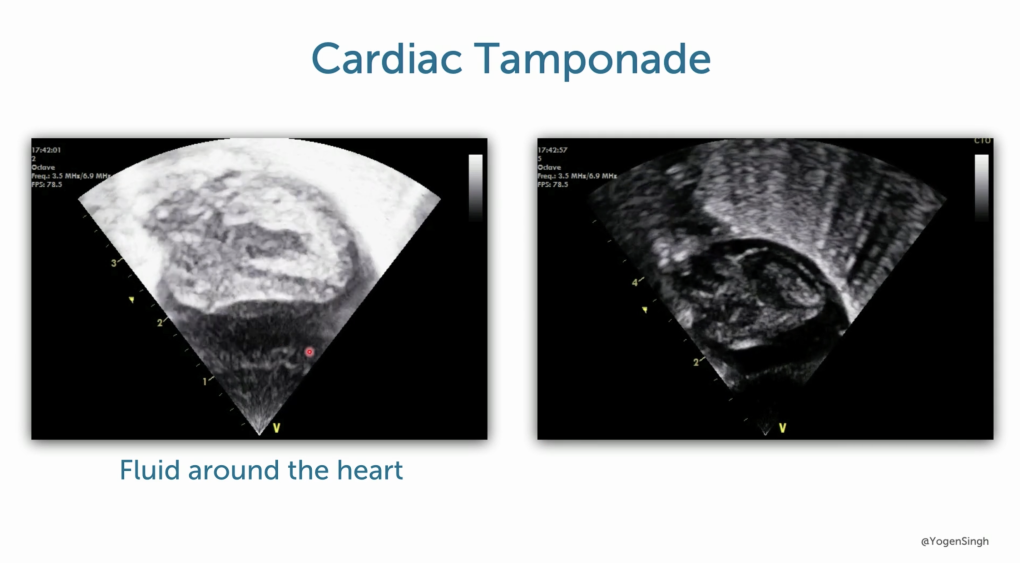Neonatal Care Cases – Part 4
PICC-Induced Cardiac Tamponade in the NICU: A Critical Case with a Happy Ending and One Crucial Lesson!
Today, we’d like to present you with a case of an infant born at an extremely low gestational age. The newborn's condition suddenly deteriorated and required resuscitation. The infant had severe bradycardia with a heart rate of only 40 beats per minute and an oxygen saturation that fluctuated between 20 and 40%. Despite extensive resuscitation efforts, including chest compressions and administration of epinephrine, saline, and bicarbonate correction, there was minimal improvement.
After 15 minutes of high-quality CPR, the heart rate remained consistently low, and oxygen saturation did not exceed 50%.
Initially, no correctable causes could be identified - the PICC line had been proven to be correctly placed in the superior vena cava a few days earlier!
But can you count on this information? The team decided to call for further help, and a rapid cardiac POCUS exam was performed. Look at the following video showing the subcostal view to judge yourself!

Further examination by cardiac ultrasound (we are now 20 minutes after the start of CPR) revealed the presence of cardiac tamponade! The right atrium and right ventricle were completely collapsed so that cardiac output (CO) was minimal despite continued chest compressions.
The NICU team performed a targeted pericardiocentesis under ultrasound guidance. The procedure allowed a considerable amount of pericardial fluid to be drained, significantly improving the baby's condition. The cardiac tamponade was most likely caused by the migration of the PICC line!
After the procedure, the baby showed improved cardiac output and increased blood volume and responded fantastically!
What should you take away from this case? - Be aware of the potential risk of massive pericardial effusion or cardiac tamponade when using PICC in the NICU. Vigilant attention to correct catheter positioning and routine position checks, especially with the integration of POCUS can help mitigate the life-threatening risk of massive pericardial effusion or cardiac tamponade!
Do you want to learn more about how to perform a cardiac POCUS exam on infants? Then benefit from our amazing offer right now! It's valid until December 31st, 2023, and you can get -30% off the Neonatal & Pediatric Ultrasound BachelorClass with lifetime access! It's never too early to learn ultrasound!
GET OFFER NOW

